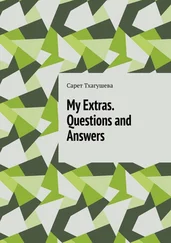Herbert Tiedemann - Babi Yar - Critical Questions and Comments
Здесь есть возможность читать онлайн «Herbert Tiedemann - Babi Yar - Critical Questions and Comments» весь текст электронной книги совершенно бесплатно (целиком полную версию без сокращений). В некоторых случаях можно слушать аудио, скачать через торрент в формате fb2 и присутствует краткое содержание. Жанр: История, на английском языке. Описание произведения, (предисловие) а так же отзывы посетителей доступны на портале библиотеки ЛибКат.
- Название:Babi Yar: Critical Questions and Comments
- Автор:
- Жанр:
- Год:неизвестен
- ISBN:нет данных
- Рейтинг книги:4 / 5. Голосов: 1
-
Избранное:Добавить в избранное
- Отзывы:
-
Ваша оценка:
- 80
- 1
- 2
- 3
- 4
- 5
Babi Yar: Critical Questions and Comments: краткое содержание, описание и аннотация
Предлагаем к чтению аннотацию, описание, краткое содержание или предисловие (зависит от того, что написал сам автор книги «Babi Yar: Critical Questions and Comments»). Если вы не нашли необходимую информацию о книге — напишите в комментариях, мы постараемся отыскать её.
Babi Yar: Critical Questions and Comments — читать онлайн бесплатно полную книгу (весь текст) целиком
Ниже представлен текст книги, разбитый по страницам. Система сохранения места последней прочитанной страницы, позволяет с удобством читать онлайн бесплатно книгу «Babi Yar: Critical Questions and Comments», без необходимости каждый раз заново искать на чём Вы остановились. Поставьте закладку, и сможете в любой момент перейти на страницу, на которой закончили чтение.
Интервал:
Закладка:
5. Other Sources
1. A physician named Dr. Gustav Wilhelm Schübbe allegedly killed 21,000 persons single-handedly, with morphine injections. 110,000 to 140,000 victims were allegedly killed in this way at the "German Annihilation Institute" in Kyiv.[50],[51]
• Injections of morphine, which was in very short supply and badly needed for wounded soldiers? And how long would it take one physician to give 21,000 injections?
• According to the files of the US Document Center in Berlin, which holds more than one million records pertaining to members of the NSDAP ('Nazi' Party), Dr. Gustav Wilhelm Schübbe was never stationed in Kyiv.
• Why did neither the USSR nor the Jews ever search for the location of this "Annihilation Institute"?
2. After the liberation of Kyiv, Moscow newspapers and the New York Times reported that 40,000 (!) inhabitants of Kyiv had written to Joseph Stalin and given the number of victims of Babi Yar as more than 100,000.[52]
• When, where and how did these people die?
• What happened to all these 'witnesses'?
3. In 1963 Nikita Khrushchev sharply criticized the literary champions of "Jewish martyrdom", especially Yevgeny Yevtushenko, who had drawn notice the year before with his poem Babi Yar:[53]
"I urge Comrade Yevtushenko and other young literati to appreciate the trust of the majority [of the people], not to seek cheap sensationalism [and] not to pander to the mood and tastes of the Philistines. Do not be ashamed, Comrade Yevtushenko, to admit your mistakes. [...]
When the enemies of our Cause begin to praise you for pleasing tales, then the people will criticize you, and rightly so."
The cause for Khrushchev's reference to "propitious tales" was Yevtushenko's readings of his poem Babi Yar. Khrushchev's blunt words weigh very heavily, for several reasons:
• Would Khrushchev have used the term "cheap sensationalism" if the hated enemy from the 'Great Patriotic War' had in fact murdered thousands of Soviet citizens at Babi Yar? Would he then have cautioned Yevtushenko against "pander[ing] to the mood and the tastes of the Philistines"?
• Would Khrushchev then have admonished against "pleasing tales"?
• In his capacity as Head of the Soviet Communist Party and General Secretary of the Ukrainian Communist Party, Khrushchev on June 24, 1941, ordered the liquidation of the political prisoners in Lvov (Lemberg). The NKVD then began with the mass murders in the prisons of Lemberg and other places in the western Ukraine. The Soviets also laid the blame for these massacres at the Germans' door. Khrushchev knew exactly who had done the murdering and who it was who had suffered!
• Furthermore, Khrushchev, a Ukrainian, knew very well that the minorities predominating in the economy and in industry, research, teaching and politics in the Ukraine - in other words, the Greater Russians and especially the Jews - had been given priority in the evacuation. He knew the evacuation rates of the Jews, for example Minsk 94%, Љitomir 88%, Novograd-Volynskij 90%, Poltava 96%, Černigov 97%, Zdanov 100%, and Taganrog 100%. For Vinnica, Kyiv and Uman it was about 80%:[54],[55],[56],[57],[58]
"In Kyiv practically the entire Jewish youth had left the city with the Red Army. Only older people remained."[54]
• Wiehn, for example, ought also to have noticed that, for on his p. 146 we read:[37]
"Sarra Evenson's advanced age had made her evacuation from Kyiv impossible."
• Since Wiehn must also have read the information he quoted from Reitlinger[59] regarding evacuation rates, one cannot help but suspect a deliberate attempt to falsify history and even to commit academic fraud. Incidentally, a few pages further one finds yet another and even more time-consuming and extremely dubious murder method. Reitlinger:[60]
"[...] that the victims were shot in the neck at the precise moment when they stepped from a board into the cave."
• A cave???
• At the 20th Party Convention of the Soviet Communist Party in February 1956, Khrushchev succeeded Stalin and charged him with organized mass murder.
• Yevtushenko got the inspiration for his poem Babi Yar from the American Jew Joseph Schechtman; it was not his own experiences he described with such a flaming pen.
4. In its entry "Babi Yar" the Encyclopaedia Judaica (Jerusalem, 1972) devotes 92% of its entry space (21.65 inches of text) to Yevtushenko's poem, but only 8% (1.8 inches of text) for an account of the massacre.[13] The encyclopedia claims that 100,000 died in Babi Yar, 33,771 of them in the last days of September.
• Could the Encyclopaedia Judaica not come up with any better evidence than a poem?
5. The Encyclopedia of Ukraine,[61] published in Toronto in 1988, states that only 3,000 Jews were executed in September, and gives their total number as "more than 150,000".
6. The Encyclopedia of the Holocaust[5] (New York, 1990) alleges a wide range of things, which for reasons of space we shall discuss in table form:
Encyclopedia of the Holocaust:
Critical Comments:
Not until after the war did it turn out that the blasting in Kyiv had been carried out by units of the NKVD which had remained behind.
The information regarding the blasting is false.[62]
On September 26 the Germans decided to kill all the Kyiv Jews as retaliatory measure.
Where is some conclusive evidence for such a German decision of September 26?
SS-Standartenführer Blobel attended this meeting.
How does this claim agree with the fact that Blobel was off duty at the time, due to his head injury of September 24?[63]
On September 28 [1941] placards were posted, ordering that the Jews had to gather at the corner of Melnik and Dekhtyarev Streets at 8 o'clock on the morning of September 29, to be resettled.
There is no evidence whatsoever for a placard produced by the printing unit of the 6th Army.
The text of the placards was written by Propaganda Division No. 637, and the placards had been printed by the printing unit of the 6th Army.
The Propaganda Division and the printing unit of the 6th Army could be forgiven for mistakes in the Russian and Ukrainian texts, but why are there grammatical errors in the German text as well? And why is no issuing authority mentioned on the placards?
An area including the Jewish Cemetery and part of the ravine was fenced in with barbed wire and guarded by a special commando of police, Waffen-SS and Ukrainian police.
What/who is the source for the information that the Jewish Cemetery and part of the ravine were fenced in with barbed wire? Waffen-SS? Ukrainian policemen?
Outside the ravine the Jews had to hand over their valuables, to undress entirely, and then to go to the upper edge of the ravine in groups of 10.
Groups of 10 would mean 3,377 groups. Even allowing only 5 minutes per group, this would still take 281 hours, or 24 days when working 12 hours a day.
On reaching the edge they were shot with automatic weapons (German edition: with machine guns).
At the end of the day the bodies were covered with a thin layer of soil.
Extra time needed for removing the piles of bodies and for covering with soil?
In the following months, thousands more Jews were captured and shot in Babi Yar.
If some 80% of the approximately 160,000 Jews - i.e., 128,000 - had been evacuated, then how could 33,771 be murdered on September 29 and 30 and thousands more in the following months?
Where did the enormous number of bullets and cartridges go?
Some of the Kyiv inhabitants helped the Jews disappear.
But the Ukrainians of Kyiv denounced Jews in such numbers that the short-staffed SIPO and Security Service could not process all the letters that arrived by the laundry-basketfull.[39]
Читать дальшеИнтервал:
Закладка:
Похожие книги на «Babi Yar: Critical Questions and Comments»
Представляем Вашему вниманию похожие книги на «Babi Yar: Critical Questions and Comments» списком для выбора. Мы отобрали схожую по названию и смыслу литературу в надежде предоставить читателям больше вариантов отыскать новые, интересные, ещё непрочитанные произведения.
Обсуждение, отзывы о книге «Babi Yar: Critical Questions and Comments» и просто собственные мнения читателей. Оставьте ваши комментарии, напишите, что Вы думаете о произведении, его смысле или главных героях. Укажите что конкретно понравилось, а что нет, и почему Вы так считаете.










